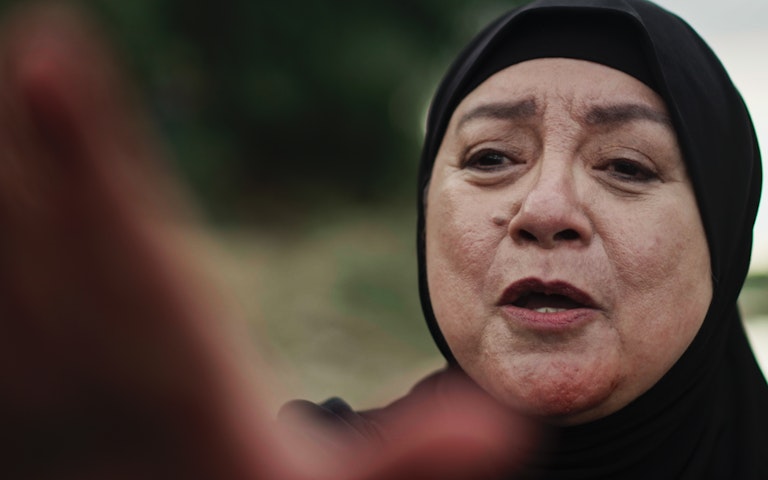
Mihály Vig x Alexandre Koberidze
The More I Zoom in on the Image of These Dogs, The Clearer it Becomes That They Are Related to the Stars
Mihály Vig
Before Mihály Vig, born in Budapest on September 21, 1957, composed music for the screen he was famous as an underground musician in Hungary. His father researched Romani music and through the records of his uncle, who had fled to the West, Vig discovered rock music.
 © Sátántangó
© SátántangóAs a child he learned to play the piano and the violin, but when he was sixteen and in boarding school, he discovered the guitar, which became his signature instrument. Following a chaotic period in his life, he founded the band Balaton - named after the lake - with some friends in 1979. The group, that exists to this day, knew its ups and downs and later on Víg would found the legendary band Trabant. “In that time music was the only road leading to progress”, Víg says about the band. A statement against the communist regime in his native country.
He owes his international fame to his collaboration with cult director Béla Tarr, which started in 1984 with Almanac of Fall. Ten years later Víg not only composed the music for Tarr’s seven hour film Sátántangó (Satan’s Tango), but also played the leading role in it. In his minimalist, conjuring score for The Turin Horse the composer played all instruments himself and achieves to provide the daily parts of human life with a poetic and mystical dimension.

Alexandre Koberidze
Born in Tbilisi on 19 October 1984, Alexandre Koberidze left his Georgian homeland in 2009, where he studied economics and film, and moved to Berlin to enroll at the Deutsche Film- und Fernsehakademie Berlin (DFFB). He sent his debut film, Let the Summer Never Come Again to the Marseille International Documentary Film Festival in 2017. It won first prize there. His next film, co-produced by the DFFB, What Do We See When We Look at the Sky, had its world premiere at the Berlinale in 2021 and won the international film criticism award there. Both films are set in a Georgian city, Tbilisi and Kutaisi respectively. In each case, Koberidze follows a couple in love. In the former, for 3h20 with a mobile phone and in the latter for 150 minutes with a 16mm camera. In both films, Koberidze himself acts as the narrator.
Already his short films, The Fall and Colophon, show that Koberidze loves imaginative storylines. In his latest film, he overlays a small love story with a fairytale-like magical realism in which he feels indebted to his famous compatriot Otar Iosseliani and to François Truffaut's Baisers volés. Good references, but the way he manages to surround his characters with deceptively simple scenes from everyday life gives Koberidze a unique voice. And not just in Georgia.


